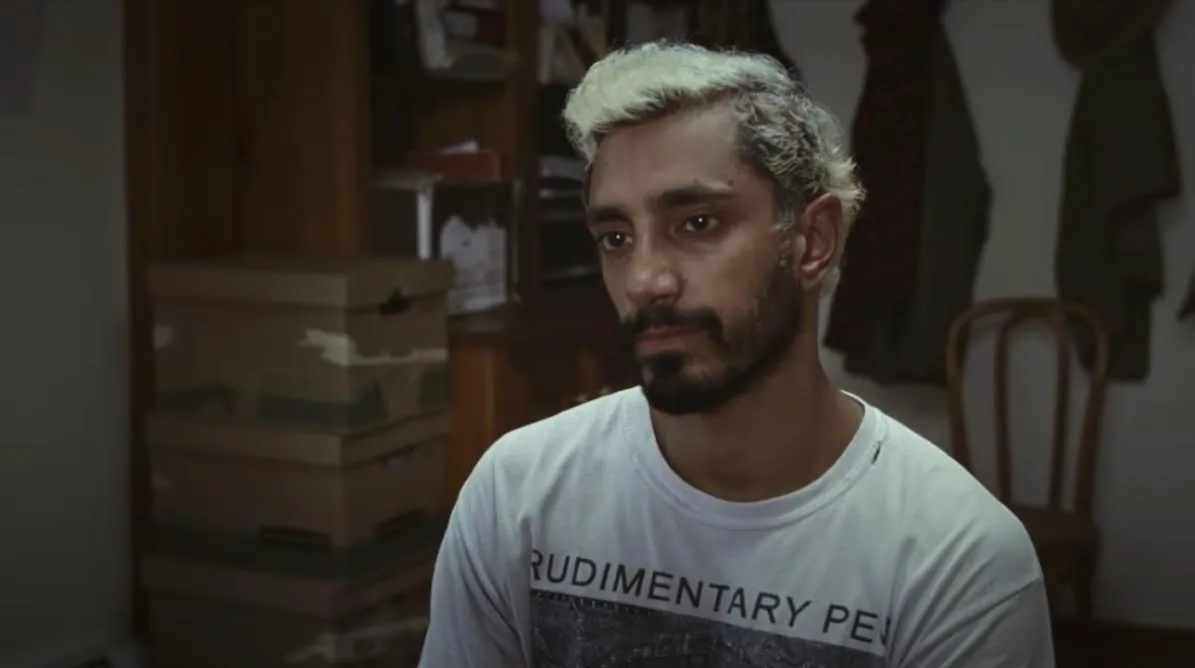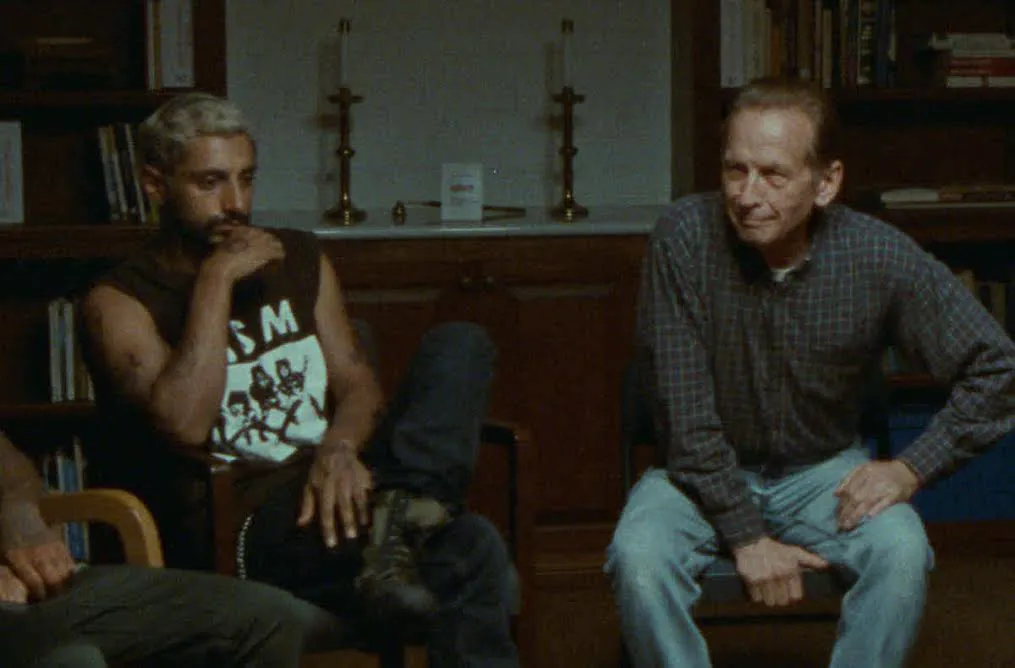Sound of Metal: A Symphony of Silence and Self-Discovery
In early December, Amazon Prime premiered Darius Marder’s directorial debut, “Sound of Metal.” The film follows Ruben (Riz Ahmed), a drummer, and his girlfriend Lou (Olivia Cooke), a guitarist, as they tour the country as a punk duo, pushing their eardrums to the limit while living in a trailer. One morning, Ruben’s world is turned upside down as he begins to experience everything as if through a seashell – he’s losing his hearing irreversibly. This forces him to abandon his music career and seek help at a remote center for the deaf. However, even upon arrival, Ruben’s self-destructive tendencies and denial persist. He clings to the hope of regaining his hearing through surgery and implants, refusing to accept his new reality until almost the very end.

Riz Ahmed as Ruben Stone in a still from “Sound of Metal”
The Creative Team Behind the Film
Marder co-wrote the screenplay with his brother Abe and Derek Cianfrance, the mind behind the bleak “Blue Valentine,” the sprawling “The Place Beyond the Pines,” and the HBO series “I Know This Much Is True.” While Cianfrance passed the directorial torch to Marder, he laid the groundwork for “Sound of Metal,” which Marder then fleshed out with a restrained, almost documentary-like narrative. This marked a departure from the chaotic storytelling of “The Place Beyond the Pines,” focusing instead on a relatable, stubborn protagonist. Ruben is convinced of his invincibility and continues to play with the same intensity as before his hearing loss, relying solely on vibrations until the time for change and difficult decisions arrives.

Olivia Cooke as Lou in a still from “Sound of Metal”
Riz Ahmed’s Transformative Performance
Over the past five years, Ahmed has taken on a diverse range of roles, from the partner of the obsessed in “Nightcrawler” to a rebel in “Star Wars.” However, none of these roles, including his work in “Mogul Mowgli,” felt as authentic and intimate as his portrayal of Ruben in “Sound of Metal.” Ruben is impulsive and irritable, with a history of addiction, but he eventually replaces his rebellious spirit with remorse and reconciliation with his ego. After experiencing submission, he chooses self-determination, which we witness and hear pulsating and chaotic throughout the story. Thanks to the fantastic work of the sound designers and the constant reverberations, Ruben, as a character, could have easily fallen into stereotypes in a less skilled performance. Ahmed bravely dives deep, reflecting every shade of despair and awareness, constantly evolving.

Still from “Sound of Metal”
Paul Raci’s Heartfelt Portrayal of Joe
Ruben’s primary mentor is Joe, one of the leaders at the center. Paul Raci delivers a breakthrough performance in this role. While relatively unknown to most (with only a single episode in “Scrubs” and “Parks and Recreation” to his name), Raci is exceptional. A professional sign language interpreter for 25 years, with deaf parents, Raci has managed to avoid personal hearing loss. A pivotal moment in the film occurs when Joe concludes Ruben’s “training,” refusing him further stay but offering advice: to let go of the shame surrounding his condition and accept it. Having grown up in unique circumstances, Raci seamlessly penetrates the hearts of both Ruben and the audience. Tears flow effortlessly, and the so-called “method” acting techniques pale in comparison to his genuine knowledge and unwavering authenticity.
A Story of Representation and Acceptance
“Sound of Metal” is also a precise and representative story. Most of the film’s actors (including many children) have hearing impairments, but in Marder’s narrative, they are not caricatures, nor do they seek pity. They are self-sufficient, living not as outcasts but as a close-knit community. They accept the world, its demanding selection process, and its standards as additions to which they can adapt, but not necessarily conform. Ruben is initially broken, but the immense stress he experiences becomes not his destruction but a springboard. After hitting rock bottom and receiving a “closed” sign, he finds peace. From the grating sound of implants to the contemplation while sitting in the center of Paris, he cautiously embraces a life without sound, a life he had stubbornly but aimlessly avoided.